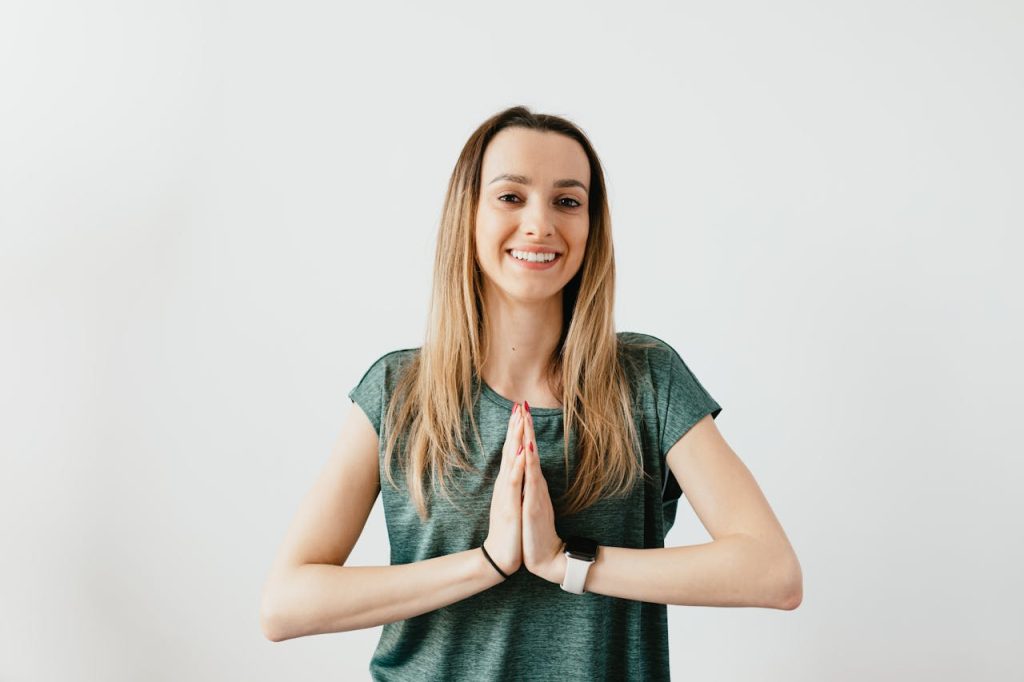Do you ever feel stressed, overwhelmed or disconnected? You’re not alone. In our fast-paced world, finding moments of calm and clarity can be difficult. That’s where meditation comes in.
Contrary to popular belief, meditation isn’t about emptying your mind. In its most basic form, it’s about training your attention and developing a calmer, more present awareness.
Meditation is easily accessible for beginners. We’ll explain the why and the how, so you can start developing a practice to improve your everyday well-being.
Why start meditating?

Studies suggest that the benefits of meditation include:
Stress reduction: By calming the mind and nervous system, meditation can reduce stress hormones and anxiety.
Improved focus: Regular practice enhances concentration, leading to better productivity and decision-making.
Emotional regulation: Meditation teaches you to observe emotions without judgment, leading to greater emotional stability and resilience.
Enhanced self-awareness: By tuning into your inner world, you can gain a deeper
understanding of your thoughts, feelings and needs.
Better sleep: By quieting the mind before bed, sleep meditation promotes deeper rest.
How do you get started with meditation?
The good news is, you don’t need any fancy equipment or special skills. Here are some simple steps to ease you in as a meditation beginner.
- Find your quiet space. Choose a comfortable place free from distractions. It could be a corner of your living room, a park bench, or even your car during your lunch break. The key is to feel relaxed and undisturbed.
- Get comfortable. Sit upright in a chair with your back straight, or cross-legged on the floor. Ensure your posture is comfortable and not stiff. Close your eyes or soften your gaze.
- Start with short sessions. Aim for 5-10 minutes initially. Even a few minutes can make a difference. As you get comfortable, gradually increase the duration.
- Anchor your attention. Your mind will naturally wander, and that’s perfectly normal! Choose an ‘anchor’ – something that grounds you in the present moment – to gently guide your attention back. Your anchor can be listening to the sound of your breath, repeating a mantra, or focusing on a physical sensation, such as the feeling of your feet on the ground.
- Observe, don’t judge. Don’t get frustrated with yourself for having thoughts or feelings during meditation. Simply observe them with a gentle curiosity, and then return your focus to your anchor.
- Be patient and kind. Just like any new skill, learning to meditate takes practice. Don’t get discouraged if your mind feels restless at first. Be patient and kind to yourself, and celebrate your progress along the way.
Meditation advice for beginners
Use guided meditations to familiarise yourself with the practice. Many guided meditations let you set specific intentions, such as stress relief or improved sleep.
Don’t pressure yourself to meditate for a long time. Even a few minutes daily can be beneficial. The key thing is consistency.
It can be a good idea to take a flexible approach. Experiment with different postures, meditation styles, and even locations to find what works best for you.
Remember, meditation is a journey, not a destination. There will be ups and downs,
moments of frustration and moments of peace. Embrace the process, trust in yourself, and enjoy the unfolding journey. Take the first step towards a calmer, more present you.
